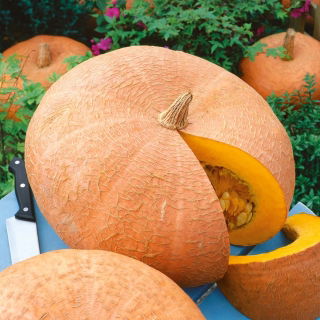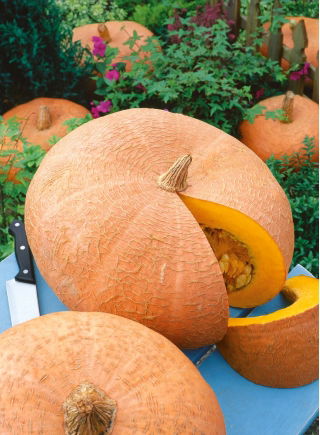- US Dollars ($)
- Euro (€)
- GB Pound (£)
- Chinese Yuan (元)
- Swedish krona (kr)
- Russian ruble (₽)
- Hong Kong dollar (HK$)
- Norwegian krone (kr)
- Indian rupee (₹)
- New Taiwan dollar (NT$)
- Danish krone (kr)
- Hungarian forint (Ft)
- Saudi riyal (SR)
- Bulgarian lev (лв)
- Czech koruna (Kč)
- Israeli shekel (₪)
- Indonesian rupiah (Rp)
- Japanese yen (¥)
- Korean won (₩)
- Malaysian ringgit (RM)
- Romanian leu (leu)
- Swiss franc (Fr.)
- Serbian dinar (din)
- Vietnamese đồng (₫)
- Ukrainian hryvnia (₴)
- Turkish lira (₺)
- Thai baht (฿)
- CAD Dollars ($)
- English
- German - Deutsch
- French - Français
- Spanish - Español
- Italian - Italiano
- Swedish - Svenska
- Norwegian - Norsk
- Danish - Dansk
- Nederlands
- Estonian - Eesti keel
- Finnish - Suomalainen
- Hungarian - Magyar
- Latvian - Latviešu valoda
- Lithuanian - Lietuvių
- Portuguese - Português
- Bulgarian - български
- Czech - Čeština
- Croatian - Hrvatski
- Romanian - Română
- Slovak - Slovák
- Slovenian - Slovenščina
- Categories
-
Seeds
-
Vegetable Seeds
-
Flower Seeds
-
- Ageratum, Flossflower seeds
- Alyssum seeds
- Amaranth Seeds
- Aquilegia, Columbine seeds
- Aster seeds
- Aubrieta Seeds
- Begonia seeds
- Bellis perennis, Daisy seeds
- Californian Poppy Seeds
- Campanula, Bellflower seeds
- Celosia, Cocksbomb seeds
- Centaurea, Cornflower seeds
- Chrysanthemum, Painted Daisy seeds
- Coleus seeds
- Convolvulus seeds
- Coreopsis seeds
- Cosmos seeds
-
- Datura seeds
- Dianthus, Carnation seeds
- Echinacea, Coneflower seeds
- Flower seed mixtures
- Forget me not seeds
- Foxglove seeds
- Gaillardia Seeds
- Gazania seeds
- Geranium, Pelargonium seeds
- Godetia seeds
- Gourd, Ornamental squash seeds
- Gypsophila, Baby's Breath seeds
- Hollyhock seeds
- Impatiens seeds
- Ipomoea, Morning glory seeds
- Calabash, Bottle Gourd seeds
- Larkspur, Delphinium seeds
-
- Limonium, Statice seeds
- Lobelia seeds
- Lupin, Lupine seeds
- Lychnis, Catchfly seeds
- Mallow Seeds
- Marigold, Tagetes seeds
- Milkweed Seeds
- Nasturtium seeds
- Nemesia seeds
- Nepeta, catmint seeds
- Nicotiana, Ornamental Tobacco seeds
- Nigella, Love in a mist seeds
- Pansy seeds
- Petunia and Surfinia seeds
- Phlox seeds
- Poppy seeds
- Primula, Primrose seeds
-
- Red Valerian, Centranthus Seeds
- Ricinus, Castor bean seeds
- Runner bean seeds
- Safflower seeds
- Salvia, Ornamental sage seeds
- Snapdragon Seeds
- Stock seeds
- Strawflower, Golden everlasting seeds
- Sunflower seeds
- Sweet pea seeds
- Tunbergia, Black-eyed Susan Vine seeds
- Verbascum, Mullein seeds
- Verbena seeds
- Veronica, Speedwell seeds
- Viola, Violet seeds
- Zinnia seeds
-
- Herb Seeds
- Sprouting Seeds
-
Flower Bulbs
-
Garden Equipment
-
At home
- Around home
-
Fertilizers
-
- All-purpose fertilizers
- Autumn and winter fertilizers
- Blueberry fertilizers
- Boxwood fertilizers
- Bulb plants' fertilizers
- Grass and lawn fertilizers
- Citrus plant fertilizers
- Compost
- Conifer fertilizers
- Dolomite and lime fertilizers
- Dry powder fertilizers
- Fertilizers for balcony and terrace plants
- Fertilizers for moss-infected lawns
- Fertilizers in pump sprayers
-
- Fertilizers in watering cans
- Fertilizers sticks
- Fertilizers with leaf shine
- Flowering plant fertilizers
- Fruit fertilizers
- Fruit tree fertilizers
- Garden plant fertilizers
- Gel fertilizers
- Geranium fertilizers
- Green plant fertilizers
- Herb fertilizers
- Home plant fertilizers
- Hydrangea fertilizers
- Lavender fertilizers
-
The Giant Pumpkin 'Jaune Gros de Paris' is a remarkable variety that impresses not only with its size but also with its intense colour and excellent flavour. It features large, slightly flattened fruits weighing up to 8 kg, covered with a smooth, golden-yellow skin. Inside, you'll find yellow-orange, very sweet flesh, perfect for preserves, jams, and as an addition to cakes. This is a medium-late, prolific variety that can successfully become a highlight of any garden and a wonderful complement to culinary experiments.
Sowing
The 'Jaune Gros de Paris' Pumpkin thrives when its seeds are sown in well-prepared soil. Ensuring adequate moisture and temperature is crucial for fast germination and healthy growth.
Sowing Depth
Pumpkin seeds should be placed at a depth of 2-3 cm. This depth provides optimal growth conditions, protecting the seeds from drying out and ensuring sufficient light for the initial seedlings.
Direct Sowing Period
When to sow the Giant Pumpkin 'Jaune Gros de Paris' seeds directly into the ground? The optimal time for this step is May and June, when the soil temperature is suitably high and the risk of frost is minimal.
Sowing Period Under Cover
When to sow the Giant Pumpkin 'Jaune Gros de Paris' seeds under cover? It is best to take this step in April or May, allowing for an earlier start to the growing season and more robust yields.
Planting Time
The best time for planting pumpkins is mid-May. At this time, the plants can freely develop in a warm and stable environment, which promotes lush growth.
Plant Spacing
When planting the Giant Pumpkin 'Jaune Gros de Paris', maintain a spacing of 100x100 cm. This provides the plants with adequate space for vine and fruit development and facilitates access to light and air.
Site Conditions
Pumpkins prefer well-sunlit positions, which ensure vigorous growth and fruit ripening. The soil should be fertile, slightly acidic to neutral, with good drainage. Regular watering is also important, especially during dry periods.
Growing Tips
In growing the 'Jaune Gros de Paris' Pumpkin, regular weeding and soil loosening are key. These plants also require appropriate fertilisation to support their growth and fruiting. It is also worth protecting against pests and diseases by using natural methods and plant protection products.
Usage
The 'Jaune Gros de Paris' Pumpkin has a wide range of culinary uses. Its flesh is ideal for making preserves, jams, as well as an addition to cakes and desserts. It is an excellent choice for those who appreciate healthy, homemade products.
Why Buy from Garden Seeds Market
Purchasing Giant Pumpkin 'Jaune Gros de Paris' seeds from Garden Seeds Market guarantees high quality, confirmed by numerous laboratory tests. The store offers fast and secure deliveries, as well as attractive promotions. The positive reviews from satisfied customers attest to the reliability and professionalism of the service. Garden Seeds Market is the ideal place for every gardening enthusiast.
The package contains 3 g of seeds. The packaging includes information on cultivation guidelines and the sowing expiry date.
New


My account
Store
Customer information
Information

© -2025 Gardenseedsmarket.




